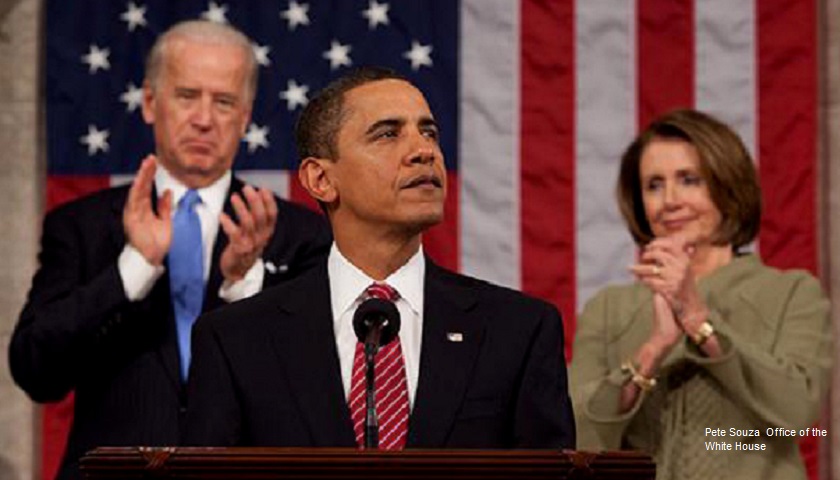by Michael Ginsberg
Barack Obama succeeded.
He promised his presidency would fundamentally transform America. And it did.
Understand, it gives me no pleasure to write these words. As a dyed-in-the-wool free marketeer and someone who is fiercely individualistic and innately skeptical of mass social movements, I much prefer the downsized presidential ambitions of Calvin Coolidge or Ronald Reagan. But credit where it is due: the election and presidency of Barack Obama unleashed forces within the United States that have permanently turned this country and its citizens in a leftward, statist direction.
Today we debate whether men can give birth, whether drag shows are appropriate for elementary school children, whether statues of Washington, Jefferson and other Founding Fathers should be displayed, and whether biological males should be permitted to compete as females in athletic competitions. People now claim to see the hidden hand of white supremacy in demands to reopen schools during the COVID pandemic. People contend with a straight face that America is committing genocide against transgender people.
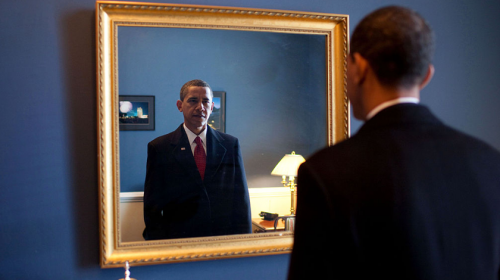 All of this most definitely represents a fundamental transformation from 2008.
All of this most definitely represents a fundamental transformation from 2008.
How did we get to a point where states openly define themselves as sanctuary states for transgender surgeries – even for minors without the consent of their parents? How did we reach a point where social justice demands corporations bend the knee to organizations like Black Lives Matter and ESG investing became de rigeur?
How did we get here? How did America’s social debates leap so wildly to these extremes?
Quite simply, it was the election and presidency of Barack Obama that is the genesis for all of the culture wars raging today. Modern Democrats always fancied themselves the party of civil rights, but their monomaniacal focus on race and identity began with Obama’s election and grew and metastasized into today’s obsession with identity following the election and during the presidency of Donald Trump.
In a sense, Obama’s election is the central pole of a Grand Unified Theory of Democratic and Progressive Politics of the last 20 years.
As the first black nominee for president, Obama’s candidacy offered something powerful to Americans: the exorcism of America’s original sin of slavery. Electing Obama would be an act of national redemption. It was the last great crusade of the civil rights movement, the breaking of the highest and hardest glass ceiling of all. For boomers, it offered a dose of 1960s nostalgia. For those too young to have partaken in the original civil rights movement, the Obama campaign allowed them a little of the frisson their parents experienced. Electing a black president would allow Americans to demonstrate they had moved beyond the racial divides of the past.
Obama and his campaign aggressively leaned into this rationale. In his speeches, he regularly reminded voters that he had a “funny name” and didn’t look like the other presidents on the currency. He recognized that progressives around the world viewed him in the same light, as an avatar of human progress, and that they wanted to be a part of this movement, culminating in his campaign speech in Berlin.
To leave no doubt about the connection of his campaign to the civil rights movement of yore, Obama deliberately accepted the Democrats’ presidential nomination on the anniversary of MLK’s “I Have a Dream” speech in front of Greek temple columns in Mile High Stadium, the speech having been moved there to accommodate a larger crowd.
Commentators also viewed Obama’s mixed-race heritage as heralding a sea change in human relations. The commentator Andrew Sullivan stated it forthrightly in a December 2007 Atlantic piece that made the racialization of politics explicit:
What does [Obama] offer? First and foremost: his face. Think of it as the most effective potential re-branding of the United States since Reagan. Such a re-branding is not trivial – it’s central to an effective war strategy …
Consider this hypothetical. It’s November 2008. A young Pakistani Muslim is watching television and sees that this man – Barack Hussein Obama – is the new face of America. In one simple image, America’s soft power has been ratcheted up not a notch but a logarithm. A brown-skinned man whose father was an African, who grew up in Indonesia and Hawaii, who attended a majority-Muslim school as a boy, is now the alleged enemy. If you wanted the crudest but most effective weapon against the demonization of America that fuels Islamist ideology, Obama’s face gets close. It proves them wrong about what America is in ways no words can.
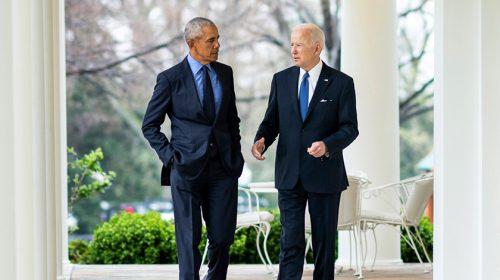 Obama gave every indication of buying into this messianic view of himself. He saw his heritage as a unique entrée into serving as a bridge between the U.S. and the non-Western world, from giving his first speech in Cairo to offering Nowruz greetings to Iran to his endless search for rapprochement with the Iranian mullahs. He viewed himself and his unique heritage as the deus ex machina that would bring Iran out from the cold and reorder national relationships in the Middle East.
Obama gave every indication of buying into this messianic view of himself. He saw his heritage as a unique entrée into serving as a bridge between the U.S. and the non-Western world, from giving his first speech in Cairo to offering Nowruz greetings to Iran to his endless search for rapprochement with the Iranian mullahs. He viewed himself and his unique heritage as the deus ex machina that would bring Iran out from the cold and reorder national relationships in the Middle East.
Sullivan went so far as to state that only one candidate – Obama – could “transcend” the questions dividing American politics in 2008. He made the implicit view of Obama’s supporters explicit: that electing the first black president would be an act of transcendence.
What, after all, was the rhetoric of “Hope and Change” about? Obama offered little original policy. His was a platform of warmed-over 1930s New Deal and 1960s Great Society statism, expanding existing social programs and continuing the march toward government-controlled health care. It was garden-variety liberalism, old wine in a new bottle. Even today, it is not clear that Obama ever had an original, innovative, unpredicted policy thought in his political career.
No, the “Hope and Change” of Obama’s platform was bound up entirely in his person – that electing a black president would be a redemptive act, that there was hope for America to move past its racial history and into the broad, sunny uplands of a post-racial society. That his election would represent cultural change for the better. An admirable goal, to be sure, but one based on emotion, feelings, and culture, not policy.
One particular moment stood out during Obama’s acceptance speech. At one point, the camera caught the face of the actor Matthew Modine. He was gazing at Obama as if looking upon a god, a higher deity. He probably knew he was on camera and was putting on his acting face, but nevertheless, it was a startling way to look at a politician. The Roman Coliseum setting, the Greek temple backdrop, and the heroic gazes of the audience: this was not a mere acceptance speech. It was a messianic event.
Another standout moment came after Obama’s election in 2010, at a ceremony at which, of all things, Obama awarded the Gershwin Prize for Popular Song to the legendary musician Paul McCartney. McCartney said that getting the prize would have been good enough, but getting it from “this president,” he said, nodding and pointing at Obama, made it extra special. In McCartney’s own words, it would not have been as significant for him if Reagan, Bush pere, Clinton or Bush fils had given him the award. The obvious messianic undertones – that Obama’s giving him the award imbued it with even greater significance – was impossible to miss.
The Obama campaign and its surrogates were also not above weaponizing race when it suited their purposes. During a debate, when John McCain pointed to Obama and said “that one” had supported a particular piece of legislation, Democrats and commentators immediately pounced on this as a racist moment. Noting Obama’s pastor Jeremiah Wright’s indisputably anti-American sermons was declared off-limits. And the media buried a picture of Obama warmly greeting Louis Farrakhan, the viciously antisemitic leader of the Nation of Islam.
Obama’s election was an undisputable, genuine mark of progress. America became the first Western country in history to elect a black head of state. Even Americans who opposed him on policy grounds felt pride in the accomplishment. The losing candidate, John McCain, and his party, the Republican Party, accepted their loss with grace and dignity. There were no calls for resistance or insurrection because a black person had been elected president. There were no riots in the streets, no refusal to accept Obama’s election. It was, in all respects, post-election business as usual in America.
A gracious political party and movement would have allowed everyone to share in this moment, to acknowledge in a very real way all of America had achieved a degree of racial harmony unthinkable 50 years earlier. That Dr. King’s Dream had, in many respects, come true.
The Democrats were not that political party, and the progressives were not that political movement.
The election of Barack Obama instead infused progressives and Democrats with an extraordinary degree of self-righteousness. They had elected the first black president, and he was a progressive Democrat. College-age progressives had earned their civil rights movement stripes and won a civil rights victory, and they jealously guarded it as their victory.
Those who opposed Obama were racists, troglodytes holding onto a white supremacist past. Continued progress on race relations demanded continued support for Obama and the Democrats.
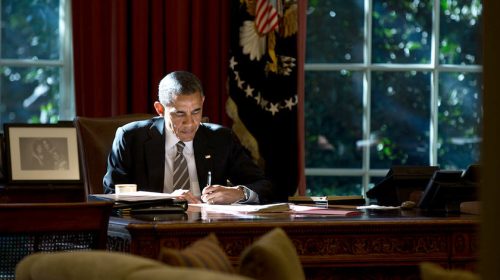 Indeed, cynical Democrats recognized the political power of soaking everything in race and turning every public policy debate into a morality play. Thus did the Frankenstein-ian monster Democrats created arise from the laboratory table. Democrats imbued every debate, every policy argument, with an unspoken underlying question: are you opposed to this in good faith, or are you opposing it because you are a racist?
Indeed, cynical Democrats recognized the political power of soaking everything in race and turning every public policy debate into a morality play. Thus did the Frankenstein-ian monster Democrats created arise from the laboratory table. Democrats imbued every debate, every policy argument, with an unspoken underlying question: are you opposed to this in good faith, or are you opposing it because you are a racist?
Two phrases came into particular vogue during the Obama presidency: “the moral arc of the universe is long, but it bends toward justice” and “the right side of history.” Martin Luther King Jr. first spoke the “moral arc of the universe” phrase, thus further cementing the conception of the Obama administration in the minds of progressives as an extension of the civil rights movement. But the unmistakable subtext of Obama’s use of these phrases was that the moral arc of the universe bent towards them, toward progressives, and that it was they who were on the right side of history. Indeed, it was they bending the universe’s moral arc toward justice.
Seen in this way, political opponents were no longer people who merely had a different conception of what constituted the best policies for American society. If progressives were bending the moral arc of the universe toward justice, their opponents must be the agents of injustice, firmly planted on the wrong side of history. Having defined themselves as the arbiters of moral progress, progressives could now justify all manner of political attacks against their opposition.
Two particular incidents during the Obama administration exemplify this ethos. The first was when Mitch McConnell, the Senate Republican leader, said he wanted to make Obama a one-term president. Such a statement from a Republican Senate leader about a Democratic president normally would be unremarkable. Of course, the Republican leader in the Senate wants to defeat a Democratic president and replace him or her with a Republican president. For a Senate Republican leader to suggest otherwise would be political malpractice. Yet Democrats pounced on this anodyne political statement as evidence of Republican racism.
The second was a 2010 Tea Party protest in which members of the Congressional Black Caucus insisted protesters of health care reform had called them the n-word during the protest. No video or testimonial evidence for this accusation surfaced despite the best efforts of the media to confirm the incident. Journalist Andrew Breitbart offered a $100,000 prize to anyone who could provide proof of the incident. No takers. Democrats used the allegation to tar the Tea Party and Republican opposition to Obama as rooted in racism, not policy differences.
Rather than demonstrating that America had moved beyond race with Obama’s election, America instead lurched wildly in the other direction, thoroughly saturating our politics in race. This was no accident. The cynical calculation of Democrats and progressives – that, given the presence of a black president, they could achieve their policy goals and neuter their opposition by branding Republicans racists no matter how mundane the policy argument – made race the central feature of American politics and turned American politics into an unending morality play. And it positioned one set of Americans, progressive Democrats in politics and the media, as moral judges and arbiters.
Obama fanned the flames, inserting himself into every racial controversy. From the Cambridge arrest of Harvard Professor Henry Louis Gates, where Obama opined that Cambridge police acted “stupidly,” to the Trayvon Martin shooting in Florida, regarding which Obama noted that “if he had a son, he would look like Trayvon,” Obama made himself the arbiter-in-chief of racial controversies, even when the facts remained unknown. Rather than withholding comment before the facts were revealed in full and the legal process played out, Obama slipped on his political commentator hat and weighed in from Olympus.
Once politics escaped the realm of the mundane and entered the realm of messianic redemption, when it became a battle of the forces of light and morality against the retrograde forces of evil, suddenly progressives could justify all manner of malfeasance. This all-purpose justification for violating laws and norms would soon come in handy. Readers familiar with the movie Forrest Gump will recognize it as the “it’s just this war and that lying son-of-a-bitch Johnson” defense.
By the end of the Obama presidency, progressives saw themselves as the vanguard of racial justice and reconciliation and the agents of moral arc-bending. As a result, they were wholly unprepared for what was coming: the election of Donald Trump.
The Election of Donald Trump
If Obama poured the concrete of placing race and identity at the center of every policy debate, Donald Trump’s election and presidency hardened it to the point where it became the alpha and omega of the activist wing of the Democratic Party. The election of Donald Trump supercharged the self-righteousness of the progressive movement and its conviction that their opponents were racist, retrograde forces. By electing Donald Trump, America had, in their eyes, repudiated the first black president and rejected the would-be first female president. And America had done this for, of all people, Donald Trump – he of the New York tabloids, the three wives, the Access Hollywood tape, multiple bankruptcies and Stormy Daniels.
Having been told for eight years that the moral arc of the universe bent towards them, that they were on the right side of history, progressives did not – indeed could not – take this well. It could not be that Americans were tired of sluggish economic growth or believed Obama’s Iran policy was misguided or deeply disliked Hillary Clinton. No, Trump’s election and its repudiation of Obama and Clinton had to have been rooted in racism, sexism, white supremacy and homophobia.
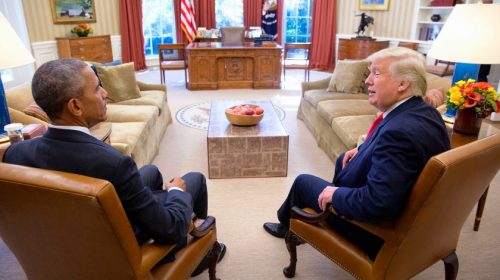 Thus, two forces were afoot simultaneously: the Democrats’ need to find an exculpatory explanation for Hillary Clinton’s loss and their already thoroughgoing racialization and identity saturation of American politics. What resulted from combining these arguments? Presto: all Democrats’ political opponents must be white supremacists, and if Democrats lose an election, it must be the triumph of white supremacy.
Thus, two forces were afoot simultaneously: the Democrats’ need to find an exculpatory explanation for Hillary Clinton’s loss and their already thoroughgoing racialization and identity saturation of American politics. What resulted from combining these arguments? Presto: all Democrats’ political opponents must be white supremacists, and if Democrats lose an election, it must be the triumph of white supremacy.
This inexorably led to inane accusations that Larry Elder, a black candidate for governor of California, was the “black face of white supremacy” (Los Angeles Times); references to Supreme Court Justice Clarence Thomas as “Uncle Clarence,” a sitting state attorney general comparing him to a house slave, and the vitriol directed at him for his opinion in the Harvard and UNC affirmative action cases; or any number of insinuations that black conservatives, from Senator Tim Scott to Congressman Byron Donalds, are effectively race traitors. It led to absurdities such as the Chicago Teachers Union arguing that parents’ demands to reopen public schools during the pandemic were “rooted in white supremacy” when, in fact, minority students were hit hardest by the school closures.
Within a week of Trump’s election, before he had done a thing as president-elect, protests and riots were taking place all over the country. Offended progressives who had been told for eight years they had the moral high ground didn’t just express their disappointment and opposition to Trump’s election. They formed the “Resistance” as if they were the Free French fighting the Nazi occupation. In this act of the morality play, Trump and the Republicans played the part of the Nazi occupation. And saying and doing anything is permissible when one is fighting Nazis.
It wasn’t that Trump was a racist. Trump had been in New York circles for four decades. Pictures of him with the Clintons and other liberal celebrities were legion. He’d donated to Democrats galore. Never once did they stop to accuse him of racism. They certainly did not return his checks. Only with his election, which thwarted the bending of the arc of history toward progressives, did he transmogrify into a racist.
But progressives had been conditioned over the eight years of the Obama administration to view themselves as the vanguard of racial and social progress. So it was only natural that they reacted to Trump’s election as proof that America wasn’t reformed, that it hadn’t moved past race, that half of America was, in Clinton’s words, “deplorable.”
Just as they learned the wrong lesson from Obama’s election, so too they learned the wrong lesson from Trump’s election. Instead of seeing the country as having moved into a post-racial era, Democrats trained to hyper-focus on race saw Trump’s election as the reaction of truculent, retrograde whites to what Democrats endlessly (and often gloatingly) described as “the browning of America.” Instead of giving Americans who voted for both Obama and Trump the benefit of the doubt, progressives condemned them as incorrigibly racist and sexist.
One lesson progressives had learned during the Obama years, though, was correct: There was no political power to be had in acknowledging racial progress and reconciliation or, for that matter, any other social progress. Power lay in accusing the political opposition of being racist and bigoted.
And so progressives identified and elevated every marginalized group, every social crusade they could find, to arm themselves with opportunities to decry the Trump administration and demonstrate its racism. Progressives expanded their aperture from race to homosexuals and, finally, to transgenders.
Moreover, progressive activists needed to sustain their feeling of self-righteousness, of being in the vanguard of social progress, of being on the right side of history. Without a Democratic president in office leading the way, they were left to their own devices to search for new marginalized groups and causes to champion while also reinforcing and expanding their grand unified theory: racism lurking in every shadow, behind every potted plant, in every opposition to their policies.
Now the Frankenstein monster Democrats and progressives created during the Obama years was fully off the table. It now began smashing the lab.
The New Civil Rights Crusades: Transgenderism and Censorship
The explosion of social justice causes during the Trump years also had a psychological aspect. Young voters who felt they had moved the country forward on race relations by energizing the Obama campaign now went in search of new dragons to slay, new causes to infuse them with the feeling of righteousness they got from Obama’s election and that Hillary’s defeat had denied them. The psychological power of fighting “white supremacy” thoroughly intoxicated the progressive Left.
From race, progressives moved on to sexuality and gender and made transgenderism their latest cause. Convinced they were again at the vanguard of the latest civil rights movement, progressives insisted that refusal to accept every policy promoted by transgender advocates was violence and genocide, and they, courageously, were standing between the unwashed pitchfork-carrying mob and the transgender community that needed their protection.
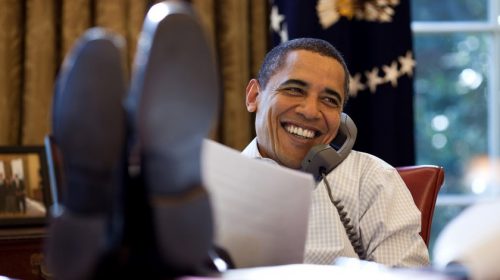 Progressives even forced their own existing movements into this racial- and identity politics-infused lens. The environmental movement, for example, today frequently couches its arguments on how “black and brown” individuals are hardest hit by climate change. Progressives now speak of “environmental justice” in the same way they speak of “social justice.”
Progressives even forced their own existing movements into this racial- and identity politics-infused lens. The environmental movement, for example, today frequently couches its arguments on how “black and brown” individuals are hardest hit by climate change. Progressives now speak of “environmental justice” in the same way they speak of “social justice.”
The unending desire to find new marginalized groups to protect and find social justice villains to punish also spawned the growth of the so-called “cancel culture.” This desire, married to the tacit societal authorization social justice provides to “punch a Nazi” figuratively (and, in some cases, literally), and coupled with social media and the ability to punch alleged Nazis without having to do so in person, led to the growth of vicious online bullying. Maladjusted people with personal anger problems, axes to grind, or a malevolent desire to visit pain on others could wrap their banal viciousness in the high-minded rhetoric of social justice. By justifying all sorts of antisocial behavior in the name of the “Resistance,” in the name of fighting racism or homophobia or whatever other -ism might come down the pike, the Left invited these maladjusted individuals to spew their viciousness with impunity. So long, of course, as they focused on the right targets.
Worse, progressives now presumed that certain forms of speech could constitute violence against the marginalized, putting black and brown lives in “danger.” Centering free speech debates on questions of “systemic racism” and “white supremacy” laid the foundation for the Left’s establishment of an all-encompassing censorship regime. The outcry over Senator Cotton’s op-ed in the New York Times, that sending in troops to quell riots put black and brown members of the Times’ newsroom in danger, was an initial demonstration of this power, which cost Times editor James Bennet his job. The response to COVID, a true health emergency, accelerated this trend, as anyone who took opposed lockdowns was demonized as putting lives at risk, killing grandmas and teachers.
Even the First Amendment’s guarantee of free speech was no match for the crusaders, who, having successfully reframed speech they disliked as violence against minorities, set about building the infrastructure of censorship. Tech companies like Facebook and Twitter, thoroughly populated by believers in the new religion of anti-racism and desiring to play their part in the zeitgeist, gladly linked arms with government and academia to build the most pervasive censorship regime the United States has ever experienced.
Paving the Way for Radicalism
Characterizing Republicans as racists, homophobes, bigots and all the rest also freed the Democrats to pursue their wildest policies and elect their most unmoored candidates. Any Democratic candidate could now argue that, no matter how radical they were, voters must vote for them because otherwise, voters would be voting for racists and bigots. It didn’t matter how crazy the policy positions of the Democrats were; voting Republican was simply not an option for anyone respectable. The successful characterization of Donald Trump as a uniquely racist, bigoted, misogynistic evil forced voters – particularly suburban voters – to grit their teeth and vote Democrat.
Trump made it easy enough for these former swing voters to turn on Republicans with his tweets, improprieties and general crudity. But it was not enough for Republicans to argue that voters should “look at Trump’s policies, not his tweets.” Indeed, Republicans least identified with Trump, such as Congresswomen Barbara Comstock and Mia Love, bore the brunt of suburbia’s rejection of Republicans.
Americans were now treated to a new form of politician: the identity politics entrepreneur. Candidates such as Alexandria Ocasio-Cortez, Ilhan Omar, Ayanna Pressley and Rashida Tlaib focused entirely on racial, ethnic and identity grievances. Their thin record of accomplishment prior to their elections only underscored the fact that identity was the alpha and omega of their elections and would be the same once in office. Their politics amounts to endless navel-gazing; everything about their public lives and policy pronouncements focuses on their racial and ethnic identities.
Contemplate Omar’s first campaign slogan: “Time for Ilhan.” She had served but one undistinguished term in the Minnesota legislature. On this empty record, what could possibly have made it “Time for Ilhan”? The obvious subtext is that it was time for a Muslim woman of color to take a seat in Congress. Just as Obama was “The One” in Oprah’s telling, so too it was “Time for Ilhan” merely because of her identity. As if to underscore the passing of the torch to the new generation of identity politics entrepreneurs, Rolling Stone featured Omar and fellow identity politics entrepreneurs Ocasio-Cortez and Jahana Hayes flanking Nancy Pelosi as “Women Shaping the Future: Nancy Pelosi and the New Voices of the House.” There was nothing new about their democratic socialism; socialists have been in American politics for over a century. Rolling Stone’s subtext was again unmistakable: Ethnic and racial diversity was what made these voices “new.”
Democrats must overlook the myriad problems of these identity politics entrepreneurs – including their regular antisemitic eruptions – to continue to support them. But the Democrats’ proposition is simple: “Who are you going to vote for, that racist Republican?” And so America continues to be treated to the spectacle of congresswomen calling Israel an apartheid state; justifying deadly riots as the voices of the unheard; and vocally demanding the prosecution of Daniel Penny, the white New York subway rider who all but the most obtuse, willfully ignorant, or cynical know was defending a subway car full of passengers from an unhinged and violent lunatic.
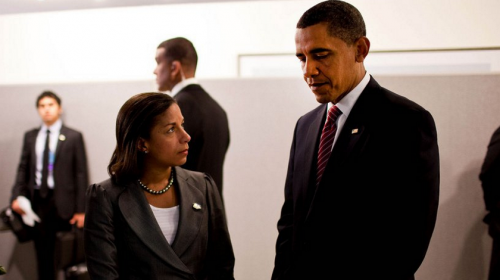 When Republicans are incorrigible racists, the Democratic thinking goes, Americans will vote for whatever radical Democrats nominate. Democrats can thus push the ideological envelope – nominate their most radical candidates, demagogue the Republican opponent as beyond the pale, and get their radicals in office. So far, they have mostly been proven correct, to the country’s great detriment. Democrats have opened the door to the most radical social policies in a generation.
When Republicans are incorrigible racists, the Democratic thinking goes, Americans will vote for whatever radical Democrats nominate. Democrats can thus push the ideological envelope – nominate their most radical candidates, demagogue the Republican opponent as beyond the pale, and get their radicals in office. So far, they have mostly been proven correct, to the country’s great detriment. Democrats have opened the door to the most radical social policies in a generation.
At the end of the day, Trump’s tweets and manner were less of an issue than his very existence and presence as president – a daily reminder of the fact that America had rejected the policies of the first black president and denied the would-be first female president. By this reckoning, Donald Trump could have been a perfect gentleman on Twitter and it would not have mattered. It was the psychological effects of Trump’s defeat of Hillary Clinton and the electorate’s desire to pursue a course different from the one the first black president charted that made the characterization of Trump as a racist and bigot inevitable.
The Policy Consequences
The policy consequences of Obama and the Democrats placing race and identity at the center of their worldview are also visible in America’s foreign policy. Obama regurgitated the typical academic anti-Western cant about how America and the West are fundamentally responsible for the world’s ills. How many times did Obama mention the 1953 overthrow of Mohammed Mossadegh in Iran? (Contrary to Obama’s view, the overthrow was very much an indigenous revolt against an increasingly authoritarian leader who had steadily lost his political allies, not a CIA-engineered plot.) How many times did Obama kowtow obsequiously to the Iranian mullahs? Why did Obama go out of his way to insult the British by returning the Oval Office’s Churchill bust? Why did Obama so ostentatiously refer to Pakistan as “Pahk-i-stahn”?
A corollary of Democrats’ obsession with race and identity is that they reflexively favor non-Western governments and peoples over their Western counterparts. They view world affairs through the same lens as domestic affairs that non-Western peoples have suffered at the hands of the West, and it is America’s responsibility to redeem itself by muting or withholding any criticism of non-Western regimes and, where possible, throwing America’s weight behind these regimes. In short, demonstrating American solidarity with the non-West.
Thus, we were treated to the spectacle of Obama enjoying warm relations with Turkey’s Erdogan – a man who has jailed more journalists than nearly any other person on Earth – while his staff insultingly referred to Israel’s (like it or not) democratically elected prime minister Benjamin Netanyahu as “Asperger-y.”
In a world of self-confident revanchist powers such as China, Russia and Iran, the self-abnegation and self-flagellation Obama introduced into mainstream foreign policy are dangerous. Such regimes pocket the concessions the guilt-wracked United States provides and carry on with their aggressions against weaker states and their own dissident citizens.
The 2015 Iran nuclear deal was perhaps the apotheosis of Obama’s identity politics on the world stage. It contained all the key ingredients for the new, Obama-led identity politics-driven Democrats: a non-Western country with an anti-Western government; grievances against the United States for supposed imperialistic interference in Iran’s domestic affairs through the 1953 coup against then-prime minister Mossadeq and U.S. support of the Shah; and collateral anti-imperialism by opposing the interests of the allegedly European, colonialist Israel. Achieving rapprochement with Iran was irresistible catnip for Obama and progressive Democrats. The deal itself was a giveaway, with the U.S. sending pallets of cash in the dead of night to Iran while the Iranians were free to perfect their missile delivery systems and bring Iran to the threshold of becoming a nuclear state. The most obvious and predictable consequence of the Iran deal, though, was one the self-congratulatory Obama diplomats never saw coming: the rapprochement of Israel and the Sunni Arab states. The Iran deal, and the Democrats’ identity-politics-driven embrace of Iran, brought together the Israelis and Sunni Arab states, both of which properly regard Iran as the true destabilizing force in the Middle East. It is no accident that cooperation between the Israelis and Sunni Arab states increased exponentially in the wake of the Iran deal. Indeed, the Iran deal’s greatest contributions to Middle East peace may have been laying the groundwork for the Abraham Accords, which brought the tacit Israeli-Sunni Arab alliance against Iran partially out of the shadows, and the deeper relationship between Israel and Saudi Arabia.
The policy consequences are apparent even in the present day. For example, the preponderance of the evidence uncovered about COVID-19 strongly favors a lab leak as the origin of the virus that killed over 20 million worldwide. Yet discussion of this possibility was immediately decreed to be off limits by accusations that the lab leak theory was xenophobic and that it might lead to a rise in anti-Asian hate crimes. The search for the truth of COVID’s origin took a backseat to prioritizing race and identity protection. This was always a deeply offensive insult to the American people, as it assumed Americans were incapable of being justifiably angry at the Communist Chinese government without taking this anger out on Asian Americans. It also stymied the investigation of the origins of the virus, crucial to avoid any repeat of the pandemic.
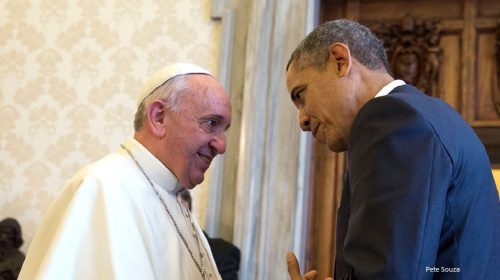 Cynical political and scientific operators who had reason to hide their collaboration with and funding of the Wuhan Institute of Virology, the likely source of the lab leak, weaponized identity politics for their own shabby and sinister ends, cloaking their opposition to the investigation of the lab leak possibility as a stand against xenophobia and anti-Asian racism and hate. They knew they had a willing audience and shock troops in the progressive vanguard ready to take their side in any battle against purported xenophobia. They could deflect their potential guilt while casting themselves as the protectors of China, Chinese researchers and Asian Americans. Thus, Americans have been treated to the shamelessly irresponsible refusal of congressional Democrats to participate in a bipartisan investigation of COVID-19’s origins. In effect, scientists and politicians who had something to hide weaponized progressives’ endless appetite to fight racism and xenophobia for the grubby ends of covering their rears.
Cynical political and scientific operators who had reason to hide their collaboration with and funding of the Wuhan Institute of Virology, the likely source of the lab leak, weaponized identity politics for their own shabby and sinister ends, cloaking their opposition to the investigation of the lab leak possibility as a stand against xenophobia and anti-Asian racism and hate. They knew they had a willing audience and shock troops in the progressive vanguard ready to take their side in any battle against purported xenophobia. They could deflect their potential guilt while casting themselves as the protectors of China, Chinese researchers and Asian Americans. Thus, Americans have been treated to the shamelessly irresponsible refusal of congressional Democrats to participate in a bipartisan investigation of COVID-19’s origins. In effect, scientists and politicians who had something to hide weaponized progressives’ endless appetite to fight racism and xenophobia for the grubby ends of covering their rears.
Similarly, the explosion of anti-Israel activism and the thinly veiled antisemitism lurking underneath is cloaked in the self-righteous language of the identity politics Obama ushered into the mainstream. Israel is now an “apartheid” state, analogized to the odious South African regime that truly segregated black South Africans from public life. This is utterly counterfactual – Israeli Arabs, particularly women, LGBTQ and non-Muslims, enjoy greater rights and protections in democratic Israel than any Arab state. Yet progressives say nothing about how Iran hangs gays from construction cranes and soccer goalposts or how Gazans live in abject fear of the ruling Hamas terrorists. For progressives, indigenous, non-Western governments can do no wrong.
Obama Returns to Give the Game Away
Obama’s recent comments on the presidential candidacy of South Carolina Senator Tim Scott are deeply revealing of what the Democrats became during and because of his presidency. Speaking of Scott, Obama said, “There’s a long history of African American or other minority candidates within the Republican Party who will validate America and say, ‘Everything’s great, and we can make it. If somebody’s not proposing – both acknowledging and proposing – elements that say, ‘No, we can’t just ignore all that and pretend as if everything’s equal and fair. We actually have to walk the walk and not just talk the talk.’ If they’re not doing that, then I think people are rightly skeptical.”
Set aside the fact that Obama made these comments as someone raised in a middle-class home by his grandfather and bank executive grandmother in Honolulu and who attended the exclusive private Punahou School in Hawaii, Occidental College, Columbia University and Harvard Law School, a far more privileged educational track than that of most Americans. Set aside that Scott grew up poor in a single-parent household, graduated from Charleston Southern University, and built his own small business.
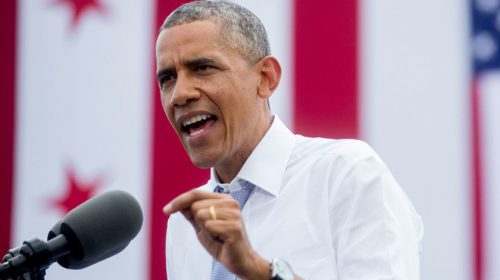 Obama’s comments, while churlish, hypocritical and divorced from the realities of his and Scott’s respective family histories and upbringing, revealed a deeper truth. That Obama felt the need to resurrect the concept of systemic racism in – it cannot be said otherwise – denigrating and diminishing Tim Scott’s presidential candidacy demonstrates just how central the concepts of race and identity, and the disadvantages minorities face, have become to Democrats’ very being. Scott refutes so much of what the Democrats believe that they must attack him, just as they have to attack Clarence Thomas, who grew up dirt-poor in tiny rural Pin Point, Georgia. Democrats cannot acknowledge the enormous progress Tim Scott represents – a black Senator from South Carolina, birthplace of nullification and the Confederacy, starting point of the Civil War – and must instead suggest that he, of all people, is ignorant of the racial and identity struggles still present in the United States.
Obama’s comments, while churlish, hypocritical and divorced from the realities of his and Scott’s respective family histories and upbringing, revealed a deeper truth. That Obama felt the need to resurrect the concept of systemic racism in – it cannot be said otherwise – denigrating and diminishing Tim Scott’s presidential candidacy demonstrates just how central the concepts of race and identity, and the disadvantages minorities face, have become to Democrats’ very being. Scott refutes so much of what the Democrats believe that they must attack him, just as they have to attack Clarence Thomas, who grew up dirt-poor in tiny rural Pin Point, Georgia. Democrats cannot acknowledge the enormous progress Tim Scott represents – a black Senator from South Carolina, birthplace of nullification and the Confederacy, starting point of the Civil War – and must instead suggest that he, of all people, is ignorant of the racial and identity struggles still present in the United States.
Obama’s comments reflect a deep-seated, almost Freudian, recognition of just how central the concepts of race and identity were to Obama’s own political career. He is a walking contradiction – the avatar of America’s redemption while he and his party relentlessly find ways in which America and, particularly, Americans who do not support the Democratic Party fall short of the racial and cultural harmony his election ushered into being.
Conclusion
The Democrats’ monomaniacal focus on race and identity has, as Obama promised, fundamentally transformed the United States. All of it can be traced to the forces within the Democratic party, the progressive movement and the anti-Western Left that Obama’s election unleashed. Democrats seized the opportunity Obama’s election provided not to embrace racial progress but to utterly inundate our politics with race and identity, to simultaneously place themselves on an unassailable moral high ground and censor any debate, differing opinions, or political opposition on the ground that they are dangerous. They have executed a neat trick by appointing themselves as moral arbiters and conveniently judging all opposing viewpoints and politicians as immoral, “dangerous,” and beyond the pale. This, in turn, opened space for Democrats’ most radical ideologues to implement their most radical policies. The results in cities like Portland and San Francisco could not be clearer.
We now spend inordinate time, effort and money reengineering our institutions to eliminate what Democrats perceive to be institutionalized racial, sexual and gender biases. We are unable to confront existential threats, from China’s reckless aggressiveness to the national debt, that are growing in severity because of our endless self-criticism.
Like a cancer, progressives’ obsession and weaponization of race is consuming America. It is weakening us just as the world is becoming more dangerous. For America to remain the greatest bulwark and champion of freedom this world has ever known, this self-flagellation must end.
– – –
Michael Ginsberg is a contributor to American Greatness.

